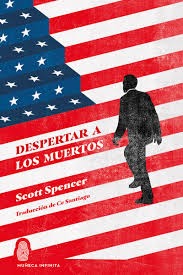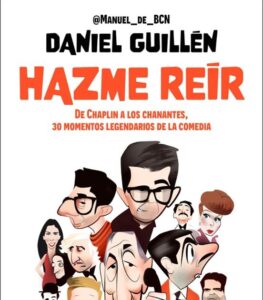
Original title: Waking the dead
Year of publication: 1986
Translation: Ce Santiago
Valuation: Highly recommended (and highly recommended, what would MR say)
I’m not beating around the bush: wake the dead It’s a novel. For several reasons: for the management of the narrative rhythm, for the agility and credibility of the dialogues, for the breadth and variety of topics covered, for how it (d)writes (about) family and couple relationships, for its full validity, etc
Going to the plot, wake the dead is the story of Fielding Pierce, a young lawyer of humble origins “predestined” to political life who saw how, a few years ago, his partner (Sarah) died in an attack while helping Chilean political exiles.
Obviously, the political aspect of the novel is fundamental. On the one hand, its connection with the political cinema of the 70s is clear since the novel is set between the years of Watergate and Operation Condor, the last blows of the Vietnam War and the end of Nixon’s mandate and it is impossible not to link it, at least in part, with films like Missing, The 3 days of the Condor o I of Icarus; On the other hand, there is also a clear criticism of a system in which those who pull the strings hide behind faces like Fielding, who in the long run turns out to be a pariah who has become the center of attention, a fish among sharks who will find himself confronted, among others, to the ideal/reality dichotomy. In this sense, references to the “aspirational middle class”, the “social elevator”, etc. are also worth mentioning. And, last but not least, the setting of the novel between New York and Chicago is no coincidence (the Chicago Boys and the rest of the family, you know).
But to stay with the political would be to make a reductionist reading of the novel and to stay with the references to seventies political cinema would be an understatement. And the novel is still the story of an obsession since, as Fielding tries to “build” his political career, Sarah’s presence becomes more and more present, to the point of ending up chasing a light ( or a shadow?). Therefore, Fielding facing his own contradictions, Fielding facing guilt and Fielding facing his past and facing his planned future through Sarah’s continued presence. Doesn’t it remind you a little of a certain movie about a certain cool chubby bald guy?
Another aspect that I would like to highlight about the novel is the contribution of the secondary characters, all of them well constructed and important in the development of the plot, all of them necessary to continually put Fielding in front of the mirror. Especially notable is the role of women and Fielding’s relationship with them.
Finally, it is essential to mention, even if only in passing (we are not going to spoil anything), the end of the novel. It is an open and ambiguous ending that leaves the doors open to a rereading in which to find possible new keys. I leave it there.
In short, 525 pages of a very good novel with which Scott Spencer manages to maintain the rhythm and tension thanks to a plot in which he mixes, in just doses, love, power, politics and other herbs.
PS: Now I reread the review I wrote about endless Love and I see that what I highlighted as strong points in that one is repeated in Wake the dead. Could it be a coincidence?
Source: https://unlibroaldia.blogspot.com/2024/11/scott-spencer-despertar-los-muertos.html


